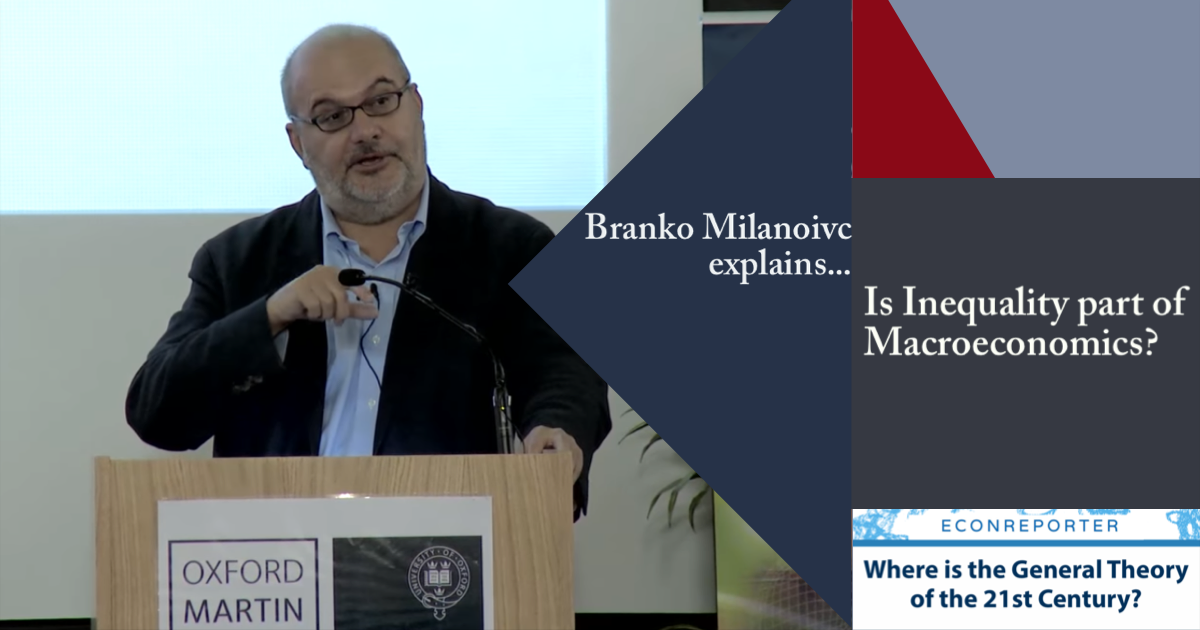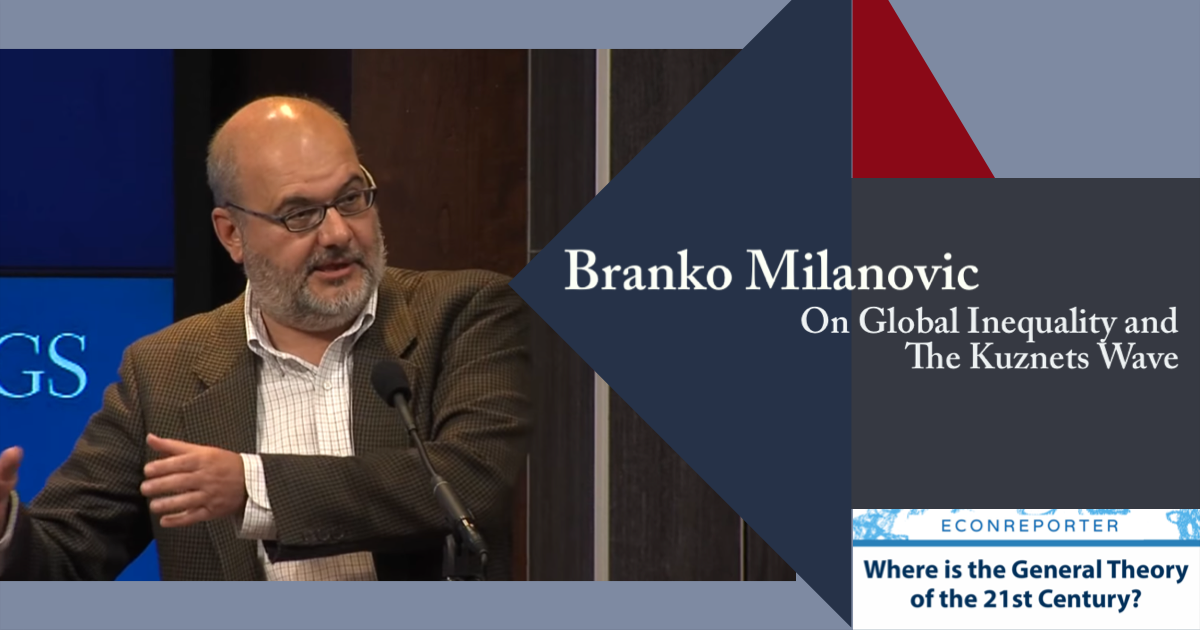Tag: Branko Milanovic
“The Rate of Return on Everything, 1870-2015”
How Alan Taylor, one of the authors of "The Rate of Return on Everything, 1870-2015" explains the liquidity premium problem when we compare the rate of return on Housing and Equity
Is Inequality part of Macroeconomics? | Interview with Branko Milanovic |
Branko Milanovic discusses whether the study of inequality can be considered as part of macroeconomics and how should macroeconomists incorporate his idea of Kuznets Waves into their models.
Global Inequality and Kuznets Waves | Q&A with Branko Milanovic |
Welcome to the latest installment of our interview series “Where is the General Theory of the 21st Century?”
“Where is the General Theory of the...










